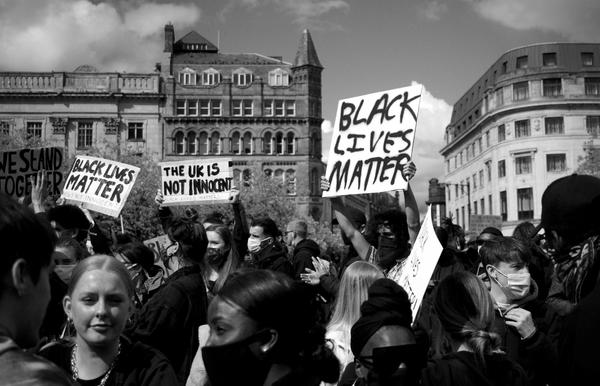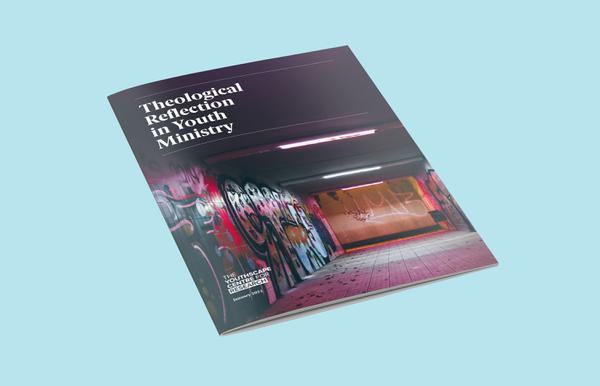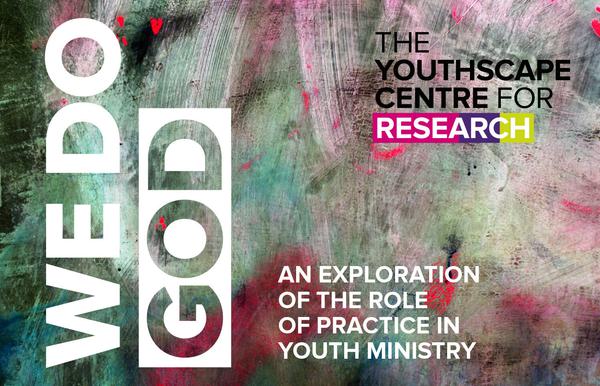This research report explores the role and potential of theological reflection in youth ministry. Dr Phoebe Hill dives into the findings and considers their implications.
Youth work is always complex, and has always had to evolve and adapt.
But over the course of the last year, we have had to evolve and adapt like never before. There’s no roadmap for how to do this well. There is no manual for doing good youth work in normal time let alone in the midst of a pandemic.
Instead, we have to improvise, in ways that are faithful to our calling as youth workers.
Theological reflection is a process that can help us do this. It helps us to consider where God might be at work, and helps us in the hard work of adapting and transforming our thinking and practice to the ever-shifting landscape of a young person’s life.
Defined simply, theological reflection is any process or activity that seeks to connect faith and life.
For some, this can involve any reflective activity, like pondering the reality of the universe on the bus or talking with fellow youth workers about their ministry.
For others, it’s a more structured and intentional process, one that draws out specific implications for our youth work and theology and changes the way that we think and act.
We wanted to know whether or not youth workers theologically reflect on their practice, and if they do, what their theological reflection looks like. We wanted to know what helps youth workers in theological reflection, and what hinders them.
This research involved both an online survey and focus groups with youth workers. 242 youth workers completed our online survey, and 11 took part in focus groups.
1. How did the youth workers feel about theological reflection?
The youth workers we spoke to were positive about theological reflection. The majority theologically reflected regularly (67% often / always), and saw it as central to their practice (61%).
The positivity and openness of the youth workers we spoke to is particularly interesting given that other groups have been found to be less positive about theological reflection. A study of clergy, for example, found a predominantly negative reaction to theological reflection, as it was perceived to be a mystifying and unhelpful activity. So why this might be the case?
Firstly, there may be less awareness of theological reflection as a specific process among youth workers. Clergy have been trained at a theological institution, and so will have been introduced to the concept of theological reflection as a specific activity during that time. It’s possible therefore that the clergy studied were reacting to the particular activity of theological reflection as it was taught on their course, while the youth workers we spoke to may have been responding to a broader concept of thinking theologically about their work.
However, over a third of our participants had been trained in theological reflection specifically on their courses, and we found no significant difference between those who had been trained and those who hadn’t. This suggests that there is a real difference between youth workers and other groups when it comes to their openness towards theological reflection.
2. What does their theological reflection look like?
We discovered several characteristics of theological reflection among the youth workers we spoke to.
Firstly, it tended to be informal. An informal approach to theological reflection may involve reflecting on a situation after it happens, and wondering how and where God was present. A more formal approach to theological reflection may involve following particular processes – like ones you might learn on a youth work course - and may be written down. This may be a more intentional activity, carried out in a proactive way to make cognitive connections between an event and the Christian tradition.
We asked the youth workers how they saw theological reflection on a scale from 1 to 5, from informal through to formal. The average answer fell on the informal side of the scale, with only 15% of the youth workers selecting 4 or 5 at the more formal end. Although the majority of answers tended towards the informal end of the spectrum, there was an acknowledgement of the role of formal approaches in learning how to theologically reflect:
“Once a more formal understanding of TR is grasped, it becomes a less formal practice. By that I mean that it becomes a habit, rather than perhaps an academic exercise! I now see TR as a part of life and ministry, rather than a formal process”
Secondly, the youth workers described their reflection as a flexible process, rather than a particular process. This was the most extreme of the responses, with over 90% of the youth workers describing their theological reflection as flexible. Many of the answers indicated that they did not follow a fixed process in their theological reflection, and that the nature of their theological reflection differed depending on the moment, context and situation.
Thirdly, their reflection tended to draw on either the Bible or personal experience as starting points. The Bible was mentioned in 46% of the responses, while personal experience was mentioned in 45%.
3. What helps and hinders youth workers in their theological reflection?
We wanted to know how youth workers could be supported in their theological reflection. We asked what helped them in their theologically reflection, and the number one answer was other people. The youth workers we spoke to wanted the chance to talk with other youth workers and process their experiences together. Theological reflection may often be assumed to be an individual activity, done in private. These youth workers clearly wanted more space and more opportunities to reflect corporately.
The main barriers to theologically reflecting were perhaps unsurprising. They were being too busy, and not having enough time. Youth work is demanding, and there are often more urgent or pressing things to do. They also mentioned activities outside of work, and distractions like technology, or time pressures like family life as challenges for theological reflection.
4. Does training make a difference to theological reflection?
On the whole, theological training made minimal difference to how youth workers perceived and practiced theological reflection. However, there was a statistically significant correlation between being trained in theological reflection and more frequent theological reflection on youth work practice. In other words, if a youth worker had done a degree type course in youth work, they were more likely to theologically reflect often.
Another statistical difference between those who had done training and those who hadn’t was found in whether or not youth workers felt supported to theologically reflect in their context.
Those who had been trained were more likely to…
- Disagree/strongly disagree that theological reflection was modelled by their boss or leader
- Disagree/strongly disagree that theological reflection was expected in their role
- Disagree/strongly disagree that they are supported in theological reflection in their context
Why might this be the case? It is possible that being trained in theological reflection increases an individual’s understanding of what it is, or increases their expectation of how they should be supported in it. This would fit with these youth workers feeling less supported in theological reflection in their context, and also being more aware of what it would look like for their managers or leaders to model theological reflection to them.
5. What makes the youth work context different when it comes to theological reflection?
There was a sense, from what the youth workers told us in the focus groups, that youth work creates a particularly productive environment for theological reflection.
“I think youth work is often on the margins and engaging with young people and new issues means that we need to think through what we do and why”
The youth workers felt that they were forced to reimagine their theological categories on a regular basis, and were positively disrupted by the young people they encountered. There was a sense that the youth work context both requires more theological reflection than a church context might, and also that it provokes more theological reflection given the nature of the work. There was also a feeling that youth workers are more open to questioning what is taken for granted, and are perhaps used to sitting on the edge of an institution.
What does this research mean?
From this research, we have several recommendations moving forwards. We need to…
- Harness the openness of youth workers. Youth workers are positive and open to theological reflection – how can we harness this positivity?
- Provide space for theological reflection in group settings. The youth workers told us that they want to theologically reflect in groups. How could we facilitate these or make these happen in formal and informal ways?
- Create space for dialogue between youth ministry and theology. We’ve seen that the youth work context is fertile ground for theological reflection. How can we strengthen the dialogue between youth work and theology to make the most of these contexts?
You can purchase a digital copy of the full research report here.








